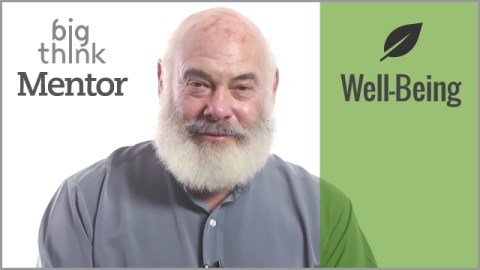The Pursuit of Happiness

The word happiness, derived from a Norse root meaning luck or fortune, encapsulates the essential flaw in how most of us go about looking for it. We tend to view happiness as an all-or-nothing, potentially permanent state, and as something that’s visited upon or snatched away from us by chance. Lost your job? You’re unhappy. Just fell in love? Happy. The idea that “true happiness” is of a uniformly high emotional pitch, and our tendency to expect it from external things ironically ends up causing us a great deal of suffering.
The holistic health practitioner Dr. Andrew Weil, along with most psychologists these days, more often uses the term well-being, which recognizes that a wide range of emotions are possible and perfectly normal in a psychologically healthy person. Weil goes even farther, citing research that suggests that the common, non-crippling form of depression, usually treated as a pathology, may actually be an evolutionary adaptation that helps people with focus and problem solving.
Video: Andrew Weil on the Pursuit of Happiness
In Spontaneous Happiness, his five-part workshop for Big Think Mentor, Weil teaches a program designed to protect and enhance emotional well-being through specific lifestyle changes. You’ll learn to:
– Take a holistic and realistic approach to unlocking “spontaneous happiness.”
– Integrate Eastern and Western approaches to positive psychology.
– Use specific breathing exercises and meditations designed to develop mindfulness
– Optimize your diet to support emotional well-being
– Build physical habits that support emotional well-being





